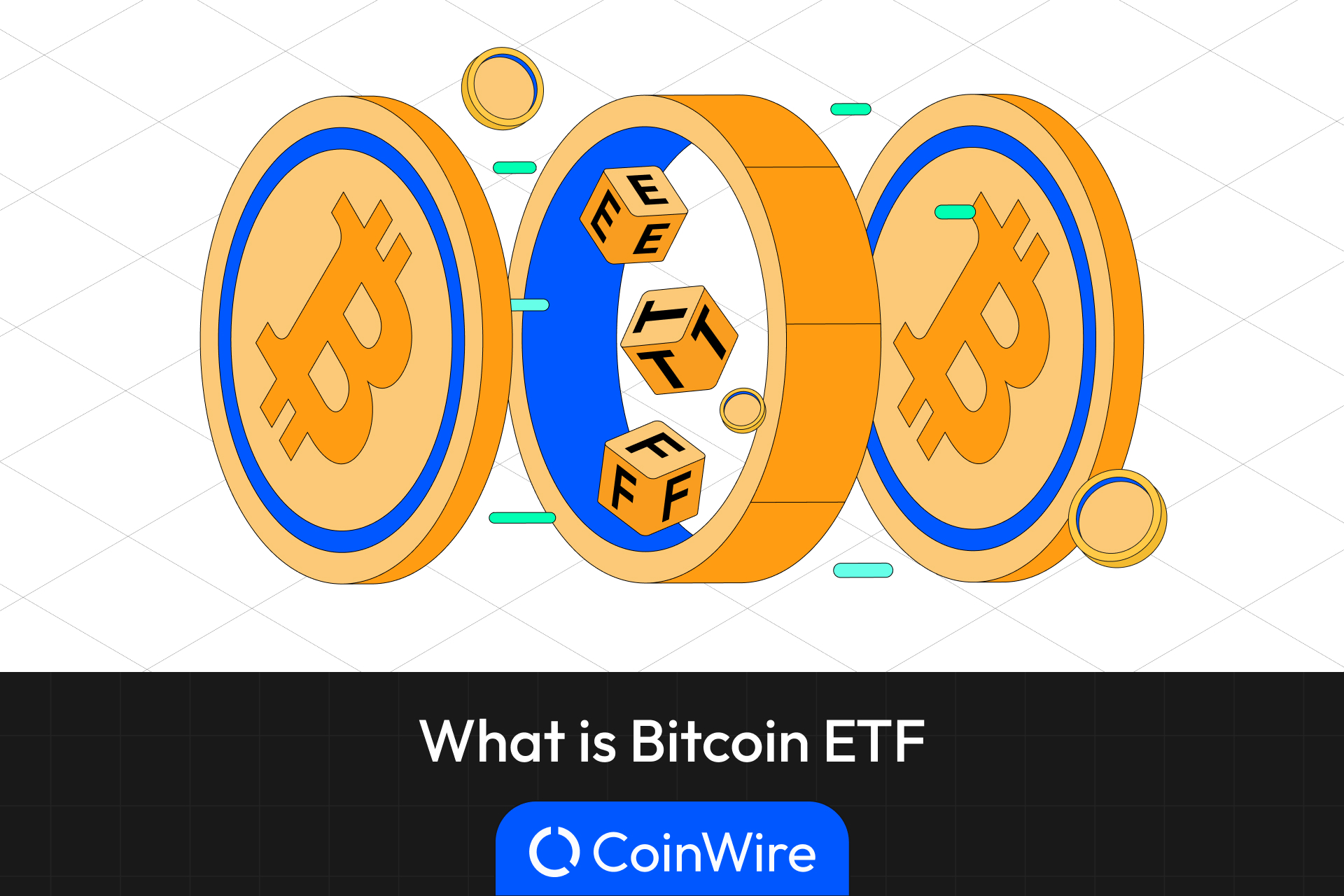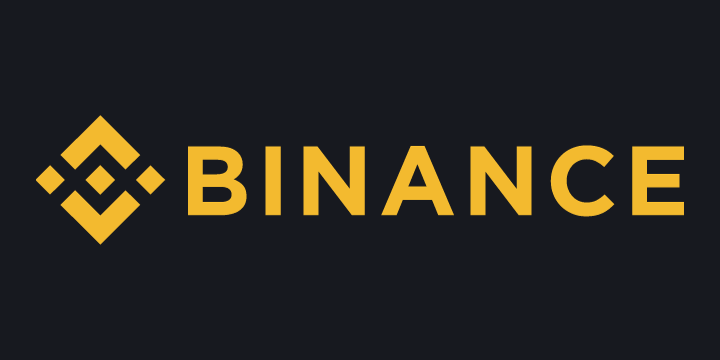Bitcoin Exchange Traded Funds (ETFs) are a groundbreaking investment vehicle designed to bridge the gap between the traditional financial system and the captivating realm of cryptocurrencies.
This new financial instrument can potentially revolutionize how people access the digital asset landscape. But what is Bitcoin ETF, how does it work, and can it promise innovation, decentralization, and impressive returns? In this article, we delve into the ins and outs of Bitcoin ETFs, exploring their mechanics, benefits, and potential impact on the investment landscape.
Key Takeaways
There are several insights you can draw from this Bitcoin ETF article. Below is a list of the most important.
- Bitcoin ETFs are regulated investment vehicles designed to expose investors to Bitcoin’s price movements without owning the digital currency.
- These ETFs (exchange traded funds) make crypto investments safer and easier to manage.
- Unlike Bitcoin, which is a digital currency, Bitcoin ETFs are mostly Bitcoin futures and spot contracts that track Bitcoin’s price.
- To get Bitcoin ETFs, participants deposit the required amount of Bitcoin with the ETF through a brokerage account. The deposit is converted to ETF shares that correspond to the amount of Bitcoin invested, and traded on exchanges.
- So far, some Bitcoin futures ETFs are legally tradable in the U.S. However, more ETF-generating firms are lobbying the Securities and Exchange Commission (SEC) to legalize Spot ETFs and more futures ETFs.
What Is Bitcoin ETF?

An ETF is an investment fund that investors can trade on stock exchanges, like individual stocks. It aims to track the performance of a specific index, commodity, or asset class. ETFs provide investors with exposure to the underlying asset without requiring direct ownership.
Therefore, a Bitcoin ETF is a regulated investment vehicle designed to expose investors to Bitcoin’s price movements without owning the digital currency. Bitcoin ETFs allow investors to gain exposure to Bitcoin through a traditional brokerage account.
Many investors turn to Bitcoin ETFs because they provide a more accessible and regulated strategy to invest in digital assets. Traditional investors who lack digital knowledge or are hesitant to trade on leading cryptocurrency exchanges often prefer ETFs.
By investing in a Bitcoin ETF, such investors can gain exposure to Bitcoin’s price movements without dealing with the complexities of blockchain systems and decentralized finance.
What Is the Difference Between Bitcoin and Bitcoin ETF
Several factors distinguish Bitcoin from Bitcoin ETF. These differences include the nature of the assets, how they can be accessed, and how they are traded.
Bitcoin is a digital cryptocurrency created in 2009 by an anonymous person or group known as Satoshi Nakamoto. It operates on one of the leading decentralized layer one blockchain networks which enables peer-to-peer transactions without the need for intermediaries like banks.
On the other hand, Bitcoin ETF is a financial instrument that enables investors to gain exposure to Bitcoin’s price movements without directly owning or managing the cryptocurrency. A Bitcoin ETF holds Bitcoin as its underlying asset and issues shares that trade on regulated stock exchanges.
The table below shows a comprehensive breakdown of the key distinctions between Bitcoin and Bitcoin ETF.
| Trait | Bitcoin | Bitcoin ETF |
|---|---|---|
Ownership | When you buy Bitcoin, you directly own the digital tokens and can control them within your digital wallet. | When you invest in a Bitcoin ETF, you own shares of the ETF, which represent an indirect ownership interest in the underlying Bitcoin held by the fund. |
Accessibility | Bitcoin can be purchased and held by anyone with access to a digital wallet and a cryptocurrency exchange. | Bitcoin ETFs can be accessed through traditional brokerage accounts, making them more accessible to investors who are familiar with stock trading. |
Regulation | Bitcoin operates within a decentralized network and is not subject to direct regulation. | Bitcoin ETFs are typically subject to regulatory oversight and must comply with the regulations imposed by the relevant financial authorities in the jurisdiction where they are offered. |
Management | Bitcoin ownership allows you to manage and control your own digital assets. | With a Bitcoin ETF, the fund’s management team makes decisions regarding the buying, selling, and custody of Bitcoin on behalf of the ETF shareholders. |
What Type of ETF Is Bitcoin?
Bitcoin is typically considered a commodity-based ETF. Commodity ETFs track the price of a specific commodity or a group of commodities, allowing investors to gain exposure to the commodity’s price movements without directly owning it.
However, Bitcoin can also be classified as other types of ETFs, depending on the underlying structure and investment strategy. Here are a few possible classifications.
- Digital asset ETF: Given Bitcoin’s digital nature, some Bitcoin ETFs may be categorized as digital asset ETFs. These ETFs focus on providing exposure to various digital assets, including cryptocurrencies like Bitcoin, Ethereum, and others. They aim to track the performance of the digital asset market as a whole or specific digital asset.
- Alternative investment ETF: Another classification for Bitcoin ETFs could be alternative investment ETFs. These ETFs offer exposure to alternative investments outside traditional asset classes like stocks and bonds. As a non-traditional asset, Bitcoin could fit into this category as part of an ETF portfolio with diverse alternative investment options.
The specific classification of a Bitcoin ETF may also depend on the regulatory framework and the investment objective of the particular ETF. These categorizations are also subject to change as regulatory bodies and financial institutions continue to refine the ETF ecosystem.
How Does Bitcoin ETF Work?

Bitcoin ETFs may work differently depending on the structure and rules set by issuers and the financial jurisdiction governing them. However, various concepts remain more or less similar across the board. Here’s a summary of how Bitcoin ETFs generally work.
- Structure: A Bitcoin ETF is a structured trust or fund holding Bitcoin as its underlying asset. The trust or fund issues shares or units representing ownership in the Bitcoin the ETF holds.
- Creation and redemption: Authorized participants, typically large institutional investors or market makers, create and redeem shares of the Bitcoin ETF. To create new shares, authorized participants deposit the required amount of Bitcoin with the ETF. In return, they receive shares representing their ownership in the ETF. Similarly, when they want to redeem their shares, they return them to the ETF in exchange for the underlying Bitcoin.
- Price tracking: The Bitcoin ETF aims to track the price of Bitcoin through various mechanisms. It may hold a specific amount of Bitcoin for each share or use derivatives, such as futures contracts, to achieve the desired price exposure. The ETF’s objective is to closely mirror Bitcoin’s price movements.
- Exchange trading: Bitcoin ETFs are listed and traded on stock exchanges, just like regular stocks. Investors can buy and sell shares of the Bitcoin ETF through their brokerage accounts during regular trading hours. The shares have ticker symbols and can be tracked in real-time.
- Net Asset Value (NAV): The net asset value of a Bitcoin ETF represents the value of the underlying Bitcoin assets held by the ETF. It is typically calculated at the end of each trading day and is based on the current market value of the Bitcoin holdings. The NAV per share helps investors understand the value of their investment.
- Fees: Bitcoin ETFs charge management fees and other expenses, which are typically expressed as a percentage of the ETF’s net asset value. These fees cover the costs of managing the ETF, including custody, administration, and other operational expenses.
- Regulation: Bitcoin ETFs undergo regulatory oversight. Typically, financial authorities in the jurisdiction where the ETFs apply, set regulations and requirements governing the ETFs. These regulations help provide investor protection and ensure transparency in the operation of the ETF.
Bitcoin Futures ETF vs Bitcoin Spot ETF

Like many other assets, Bitcoin ETFs have several trading options, including futures and spot trading. Bitcoin Futures ETFs differ significantly from Bitcoin Spot ETFs. Below is a breakdown of what each offers and how they differ.
Bitcoin Futures ETF
Bitcoin futures are derivative contracts that allow investors to speculate on the future price of Bitcoin. These contracts allow the buyer to purchase or sell Bitcoin at a predetermined price on a specified future date.
Bitcoin ETFs work just like Bitcoin futures. However, instead of acquiring or trading the asset on a specific date, Bitcoin futures ETF allows investors to buy and sell future contracts. The contracts show a holder’s right to buy or sell the number of Bitcoins specified in it.
Related: Binance Futures Quiz Answers (Updated in July of 2023)
Bitcoin Spot ETFs
Bitcoin spot trading refers to the buying or selling of actual Bitcoin in the current market at the prevailing market price. It involves the direct ownership and transfer of Bitcoin between buyers and sellers. Spot trading typically occurs on cryptocurrency exchanges or peer-to-peer platforms.
With Bitcoin Spot ETF, investors get exposure to Bitcoin through direct ownership of the digital currency. Instead of tracking the price of Bitcoin using futures contracts or derivatives, a Bitcoin spot ETF would hold actual Bitcoin as its primary asset.
The Bitcoin Spot ETF functions like a traditional ETF, allowing investors to buy and sell shares of the ETF on stock exchanges. The ETF holds and manages the actual Bitcoin, providing investors with indirect ownership and exposure to the cryptocurrency’s price movements.
How to Invest in Bitcoin ETF

Investing in Bitcoin ETFs is a simple five-step process. As long as you have a bit of knowledge of how stock exchange markets work, you will be good to go. Let’s explore this comprehensive guide on how to buy a Bitcoin ETF.
1. Research and Select an ETF
Start by researching the available Bitcoin ETFs and understanding their investment strategies, expense ratios, historical performance, and other relevant factors. Compare different options to find the one that aligns with your investment goals and risk tolerance.
2. Open a Brokerage Account
To invest in an ETF, you will typically need to open a brokerage account with a reputable brokerage firm that offers access to the specific Bitcoin ETF you want to invest in. Ensure that your brokerage firm supports ETF trading and has a user-friendly platform.
3. Fund Your Account
Once you have opened a brokerage account, you will need to deposit funds into it. Follow the instructions provided by the brokerage firm to transfer the desired amount of money to your account.
4. Place an Order
After funding your account, navigate to the trading platform provided by your brokerage. Locate the Bitcoin ETF you want to invest in and place an order. You can specify the number of shares or the dollar amount you wish to invest.
5. Monitor and Manage Your Investment
After investing in the Bitcoin ETF, regularly monitor its performance and stay updated with any news or developments related to the ETF and the underlying Bitcoin market. Consider setting up notifications or alerts to stay informed.
Related: The Complete Guide to Add Bitcoin to MetaMask Wallet (2023)
Are Bitcoin ETFs Available in the U.S.?
Several companies and organizations have attempted to launch Bitcoin ETFs, but only Bitcoin Futures ETFs have received approval from the U.S. Securities and Exchange Commission (SEC). The SEC expressed concerns about issues like market manipulation, liquidity, and custody of the underlying Bitcoin assets for Bitcoin Spot ETFs.
While the United States has not fully approved a Bitcoin ETF, other jurisdictions, such as Canada and some European countries like Germany, Sweden, and Switzerland, have allowed the launch of Bitcoin ETFs.
Pros and Cons of Bitcoin ETFs
Like any investment vehicle, Bitcoin ETFs have their own pros and cons. Here are some potential advantages and disadvantages associated with Bitcoin ETFs.
Pros
- Accessibility: Bitcoin ETFs can provide a more accessible way for investors to gain exposure to Bitcoin. They allow investors to participate in the potential price appreciation of Bitcoin without directly owning and managing the cryptocurrency itself.
- Regulatory oversight: Bitcoin ETFs are subject to regulatory oversight, which can provide investors with a sense of security and protection compared to investing in unregulated cryptocurrency exchanges. Regulatory scrutiny may help prevent fraud and market manipulation and enhance transparency.
- Liquidity: ETFs generally offer liquidity, allowing investors to buy or sell shares on stock exchanges during regular trading hours. This liquidity can provide flexibility and ease of trading, allowing investors to enter or exit positions with relative ease.
- Familiar structure: Bitcoin ETFs follow a familiar structure, similar to traditional exchange-traded funds. This familiarity may make it more appealing to investors who are already familiar with ETFs and comfortable with their operational mechanisms.
Cons
- Volatility: Bitcoin’s price is highly volatile. While this volatility can present opportunities for potential gains, it also exposes investors to higher levels of risk. The value of Bitcoin ETF shares can fluctuate significantly, potentially resulting in substantial losses.
- Market manipulation risks: Bitcoin ETFs may be susceptible to market manipulation risks, especially if the underlying Bitcoin market is not effectively regulated. Manipulative activities could impact the price of Bitcoin and, consequently, the value of the ETF shares.
- Counterparty risk: Some Bitcoin ETFs may use derivatives or financial instruments to track the price of Bitcoin. These instruments introduce counterparty risk, where the performance of the ETF is dependent on the performance and credibility of the issuer or counterparty.
- Tracking errors: ETFs aim to track the performance of an underlying asset or index. However, tracking errors can occur, leading to discrepancies between the ETF’s performance and the actual price of Bitcoin. These tracking errors can result from various factors, including fees, rebalancing, and market conditions.
- Limited control over Bitcoin: Investing in Bitcoin ETFs means relying on the fund’s management to make investment decisions and manage the underlying Bitcoin. Investors do not have direct ownership or control over the actual Bitcoin held by the ETF, limiting their ability to influence its management.
FAQs
Does Bitcoin have an ETF?
Yes, Bitcoin has an ETF. The cryptocurrency has futures and spot ETFs that help investors gain exposure to Bitcoin price movements without owning and managing the asset or any decentralized finance aspects like crypto wallets.
Will Bitcoin ETF be approved?
There’s a very high chance that the Securities and Exchange Commission (SEC) will approve Bitcoin Spot ETFs in the future. With pressure mounting from companies like BlackRock, the world’s most prominent investment management firm, the legislator may end up legalizing these exchange-traded funds. So far, though, the SEC has legalized Bitcoin futures ETFs.




![How to Mint NFT on Solana: Ultimate Guide for [currentyear] 23 How To Mint Nfton Solana Featured Image](https://coinwire.com/wp-content/uploads/2022/10/how-to-mint-NFT-on-Solana-1024x683.png)

![Binance Margin Quiz Answers (Updated in [currentmonth] [currentyear]) 31 Binance Margin Quiz Answers Featured Image](https://coinwire.com/wp-content/uploads/2023/01/binance-margin-quiz-answers-featured-image-1024x683.png)
![How to Buy Crypto Under 18 in [currentyear] with Minors 32 How To Buy Crypto Under 18 Featured Image](https://coinwire.com/wp-content/uploads/2023/10/how-to-buy-crypto-under-18-featured-image-1024x683.jpg)